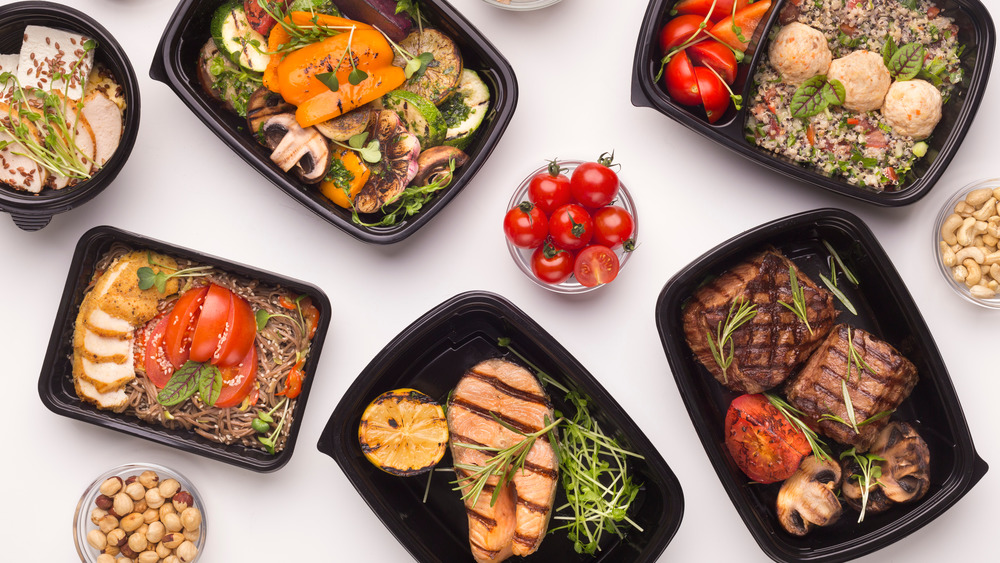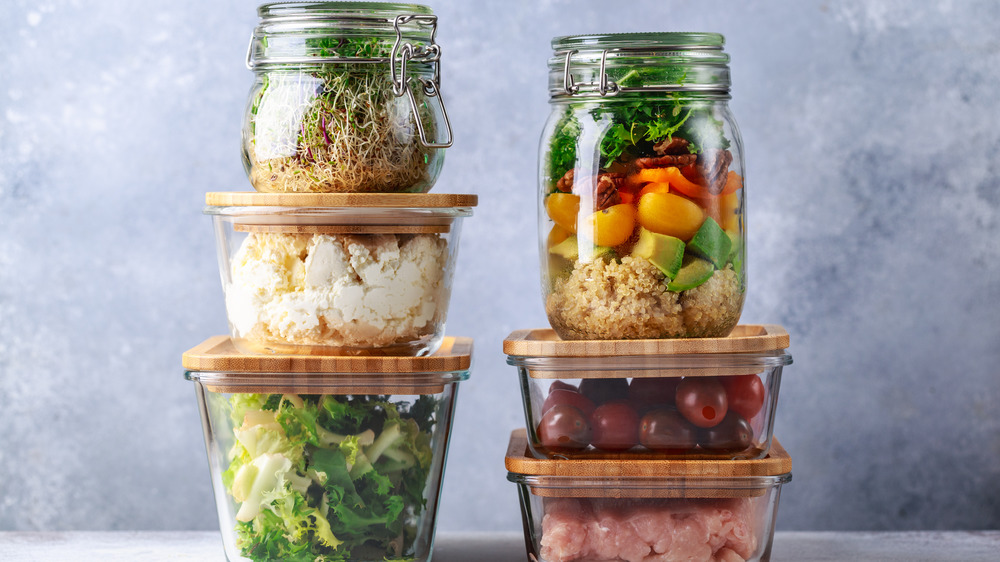The Real Difference Between Glass And Plastic Food Storage Containers
Everyone has done it. After eating take out or polishing off the last of the ice cream, chances are you have probably washed those plastic containers and used them as food storage. But the truth of the matter is that those containers are not designed to be reused over and over, which is why they probably won't hold up to your expectations over time, too (via Real Simple). Those containers work well for transporting food, but you really need to have a real set of food storage containers.
According to Real Simple, airtight glass is the best material for food storage containers. Glass tends to be a safe material in both the microwave and the dishwasher because it won't react to the high temperatures of heat that both use. Glass is also nonporous and BPA-free, so you don't have to worry about it or other chemicals being absorbed into your food as it heats up. The toxic chemicals that can end up in your food if you use plastic can affect the endocrine system which is responsible for your metabolism, respiration, growth, and movement among other bodily functions (via Hormone).
The benefits of using glass food storage containers over plastic
Another benefit of glass is that it will not melt or warp at high temperatures the way plastic will (via Epicurious). Glass that is made for food storage is also designed so that it will not break at freezing temperatures, nor will it release any chemicals at low temperatures either. Glass also tends to be more leakproof so you won't have to clean up as many liquid leaks in your fridge.
At this point, most people know that plastic is not easily recycled and a depressingly low number of plastics are actually recycled. That's another difference between the two materials. Glass is 100 percent recyclable and it can last a lifetime if it is properly cared for.
Though plastic containers take up less space, glass tends to be more visually appealing. Plastic containers are useful when it comes to transporting food or packing meals for kids on the go, but they should not be used repeatedly for extended periods of time.

